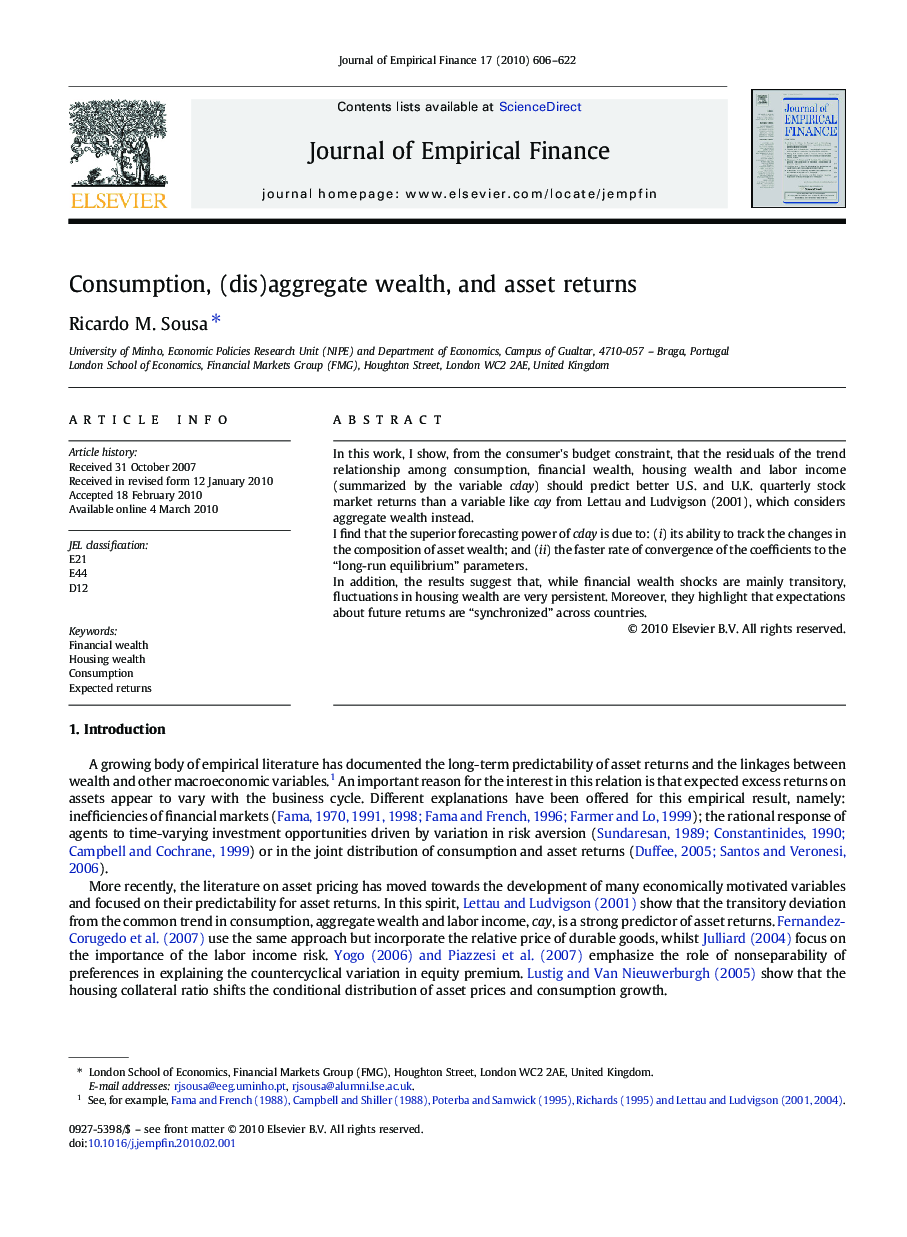| Article ID | Journal | Published Year | Pages | File Type |
|---|---|---|---|---|
| 958608 | Journal of Empirical Finance | 2010 | 17 Pages |
In this work, I show, from the consumer's budget constraint, that the residuals of the trend relationship among consumption, financial wealth, housing wealth and labor income (summarized by the variable cday) should predict better U.S. and U.K. quarterly stock market returns than a variable like cay from Lettau and Ludvigson (2001), which considers aggregate wealth instead.I find that the superior forecasting power of cday is due to: (i) its ability to track the changes in the composition of asset wealth; and (ii) the faster rate of convergence of the coefficients to the “long-run equilibrium” parameters.In addition, the results suggest that, while financial wealth shocks are mainly transitory, fluctuations in housing wealth are very persistent. Moreover, they highlight that expectations about future returns are “synchronized” across countries.
